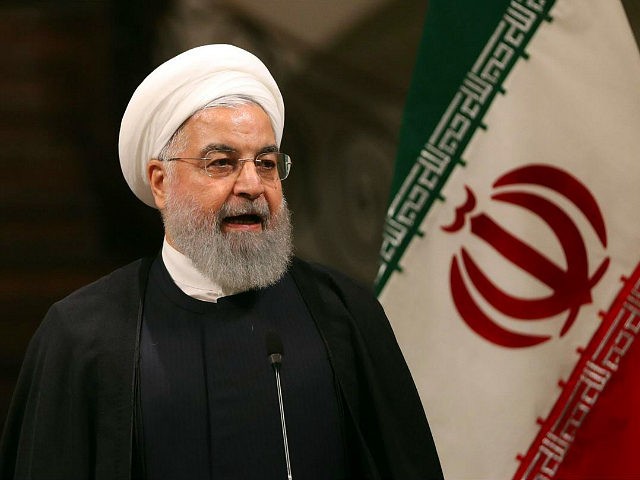Iran on Monday reportedly indicated it is open to talks with its longtime regional rival Saudi Arabia following reports that U.S. sanctions on its oil industry have severely crippled its economy.
Some analysts have credited U.S. President Donald Trump’s economic sanctions currently choking the Iranian economy with pressuring Iran to negotiate and compromise. Washington’s “maximum pressure” campaign has rendered Tehran increasingly isolated from the international community.
Iran is open to an “unconditional resolution of regional issues,” the state-run Tasnim News Agency reports.
On Monday, Abbas Mousavi, a spokesman for Iran’s Foreign Ministry, reportedly welcomed a call from Saudi Arabia to negotiate with Iran as a “positive signal.”
“Iran has repeatedly called for the settlement of problems among Islamic countries without preconditions, and warmly welcomes any measure that would result in the proximity of Islamic countries,” the spokesman said, later stressing, “Iran’s response to any positive signal will be a positive one.”
In an editorial published by Arab News on Monday, Abdel Aziz Aluwaisheg, the assistant secretary-general for political affairs at the Gulf Cooperation Council (GCC), wrote that the Trump sanctions are “working,” echoing U.S. officials.
The GCC official added:
Despite gloomy news from the standoff between Iran and the rest of the world, there appears to be a silver lining. The Joint Comprehensive Plan of Action (JCPOA) is now practically dead and U.S. “maximum pressure” is working. The U.K. is recalibrating its Iran policy and new European leaders may also do the same. Iranian politicians are hinting at compromise. These developments should lead to a political way out through genuinely “joint” and “comprehensive” negotiations that cover all aspects of the conflict.
Last year, the Trump administration pulled out of the 2015 nuclear deal between Tehran and U.S.-led world powers, arguing that it was not severe enough on Iran’s illegal nuclear development.
The Trump administration reimposed the economic restrictions suspended under the accord as part of an unprecedented wave of sanctions, targeting Iran’s oil, gas, shipping, and banking sectors, among others.
Iran has repeatedly refused the Trump administration’s offers to talk, saying it will not negotiate if sanctions remain in place.
Nevertheless, Frederick Kempe, the president and CEO of the influential Atlantic Council think-tank, also noted in an editorial published by CNBC Saturday: “Surprising new signs are emerging that President Donald Trump’s controversial ‘maximum pressure’ campaign on Iran could set the table for new negotiations toward a better agreement.”
Potential negotiations between Iran and Saudi Arabia come as the two rivals are fighting a proxy war in Yemen. So far, the conflict has killed nearly 100,000 people, thrust millions to the brink of starvation, and spawned the globe’s most devastating humanitarian crisis since it began in March 2015.
The Saudis and UAE have been leading a U.S.-backed Sunni coalition fighting on behalf of the internationally recognized government against Iranian-allied Shiite Houthi rebels in Yemen. Houthi rebels have repeatedly launched attacks into Saudi Arabia, which borders Yemen.
Mousavi praised the UAE’s recent decision to begin drawing down its forces from Yemen.
The UAE’s move involves withdrawing “several thousand troops,” the Associated Press (AP) reported on July 25.
UAE officials hope the reduction will boost negotiations with the Iran-allied Houthis to end the Yemen war, which currently stands at a stalemate.
Saudi Arabia is one of the Trump administration’s closest allies in the Middle East. The Sunni kingdom has expressed support for U.S. efforts to contain Iran and prevent it from further destabilizing the Middle East and beyond.
Last month, U.S. Secretary of State Mike Pompeo traveled to the Middle East to build a “global coalition” against Iran with the help of Saudi Arabia and the UAE.
Besides the Middle East, Iran and its terrorist proxies — including the Lebanese Hezbollah and Islamic Revolutionary Guard Corps (IRGC) — maintain a presence in the Western Hemisphere, prompting concerns among the U.S. military.

COMMENTS
Please let us know if you're having issues with commenting.